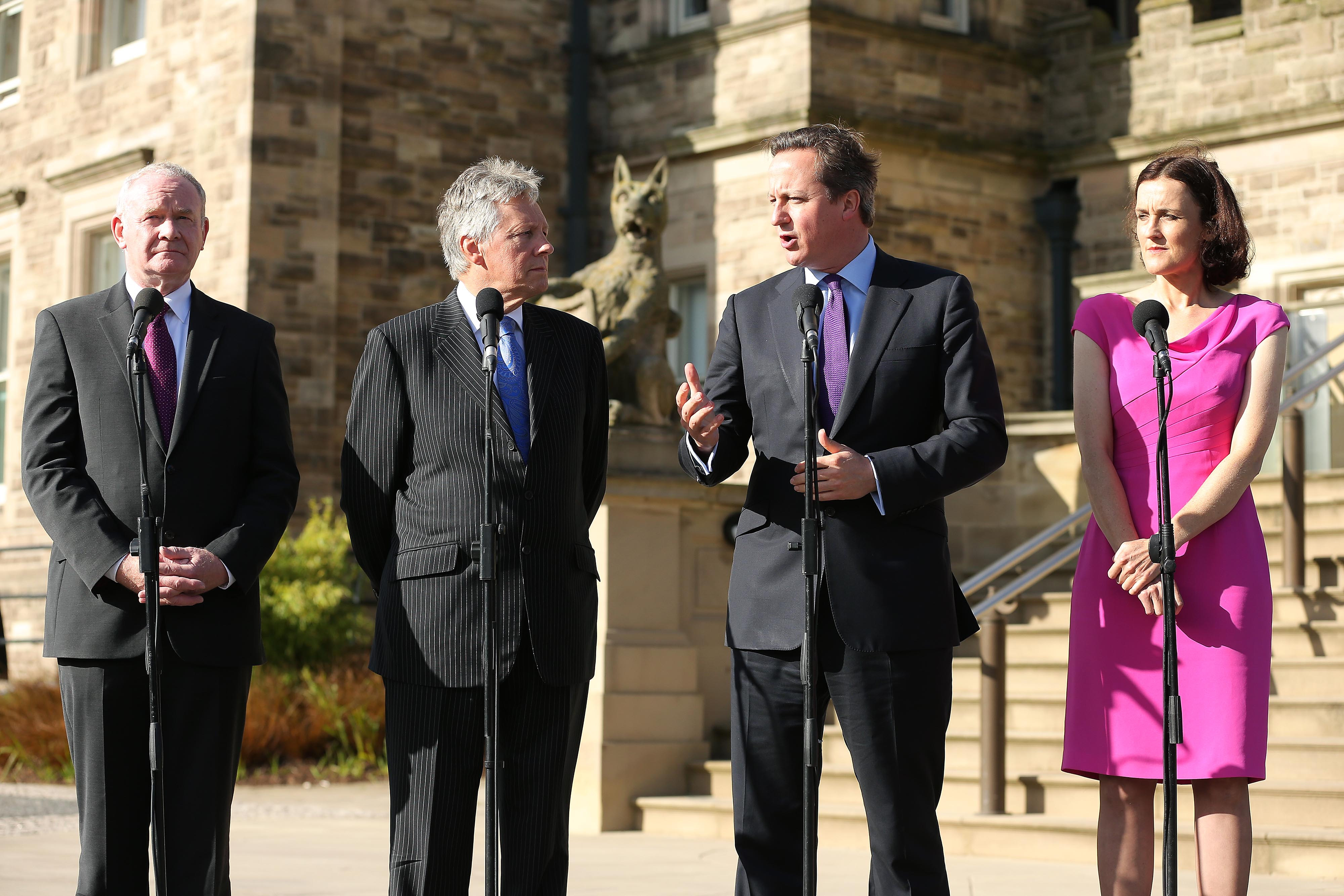Decision Time Looms On Corporation Tax
Here’s a prediction, which by Christmas will be proved either right or wrong. If it’s inaccurate, I promise, if I have the opportunity in these pages, I’ll say sorry, I made a mistake.
Sometime this autumn David Cameron will fly over here and offer us control over corporation tax.
We will be given the opportunity to determine what we think is the right charge to impose on businesses. The new levy will apply to those companies already here and those which may be attracted here.
There will be a price to pay. It will amount to several hundred million pounds off the block grant each year, but as the new tax rate will most probably be phased in, so the cost of implementing the reform will gradually rise from a relatively low base.
Only a year or so ago such a development looked to many entirely unrealistic. It’s not going to happen was the refrain I heard. And even now there is a view that it depends on the outcome of the Scottish Referendum.
I suspect that argument is mixing up two different issues. There certainly wasn’t going to be any decision one way or the other while the Scots were mulling over independence. But the result of the vote which takes place next week will not fundamentally change the Conservative position on giving Northern Ireland control over corporation tax. If there’s a majority in favour of Scotland going it alone, it will expose just how unpopular centralised Westminster control is and give a further boost to devolution. Should the no vote triumph, then the Conservatives risk nothing by transferring new powers to Stormont. In fact the case for granting greater powers to the devolved institutions strengthens, because doing so might head off another independence vote in Scotland.
I believe that by the time the prime ministerial visit is in the offing, the prospect of securing power over corporation tax won’t seem that surprising. Nods, winks and hints will be dropped which will prepare us for the announcement. And those who said it would never happen will quietly forget they were ever doubters.
Of course a decision to cede control over business tax is not the end but only the beginning of the story. Just how do we use this power? How is the benefit to be maximised? It’s not just a matter of calibrating the right rate to make us competitive with the south. It’s not just about working out how best to promote the attractions of the new rate in overseas markets.
No, I believe one major hurdle will be to change a business mindset affecting many firms here which have devoted time and effort to extracting grants from government and securing public sector contracts.
Up to recently that strategy has made a lot of sense. Stormont and the public agencies it funded had lots of contracts to hand out. The work was secure and the cash was guaranteed. But the nature of this sort of trade did not allow for soaring salaries.
Even some firms whose customers were in the private sector have probably been greatly exercised by the need to keep the wage bill down. Call or contact centres, whether serving sister companies or outside clients, are essentially producing a commodity-type service where one of the most effective ways to differentiate your offering is through beating the competition on cost.
All firms, naturally, want to minimise their outgoings but those which are very innovative, export-orientated and selling high-value products can afford to pay bigger salaries to attract the right type of staff. We just don’t have many examples of that type of firm which is largely why this is a relatively low wage economy.
Not only are wages modest, we’ve in the past sold Northern Ireland to prospective foreign investors partly on the basis that we are a cheap and cheerful place for investment. That marketing approach which has been evolving as Invest NI has been more successful in bringing in better paying firms but it needs to go further.
The new story should be that if you aim to be very successful and make a lot of profit, this would be an excellent choice of location because of our nearness to the eurozone, educational skills, young labour market, English language fluency, excellent communications (though in the case of air services that’s stretching it a bit) and cost efficiency.
Suggestions that you can hire workers including graduates cheaply should simply not be advertised. It just sends out the wrong message, fixing in investors’ minds an image of Northern Ireland as some gigantic call centre or back office, with over educated young people, working hard on insufficiently demanding tasks for modest wages.
By the way, the prospect of higher paying employers coming and mopping up graduates might well have an impact on existing service firms. It will either force current employers to increase salaries or if they refuse and lose staff, to provide opportunities for lesser qualified applicants who could satisfactorily undertake the work currently carried out by graduates.
As the lower tax charge attracts more productive firms here, the job market will adapt in response. Companies already here, whether indigenous or not, will be forced to modify their approach in order to survive as the level of government support inevitably declines.
I suspect that the smaller firms, unless they are guided through the process of change, will find the experience disruptive and challenging rather than empowering and lucrative.
Source: irishnews.com




